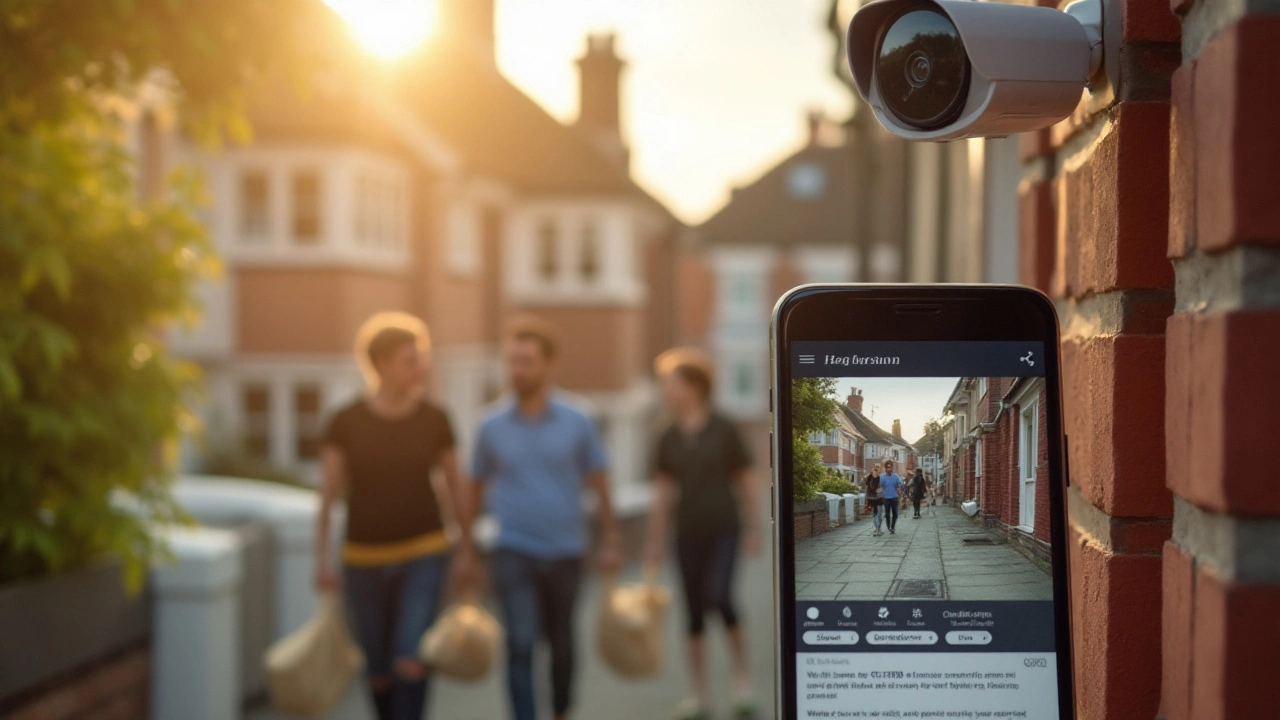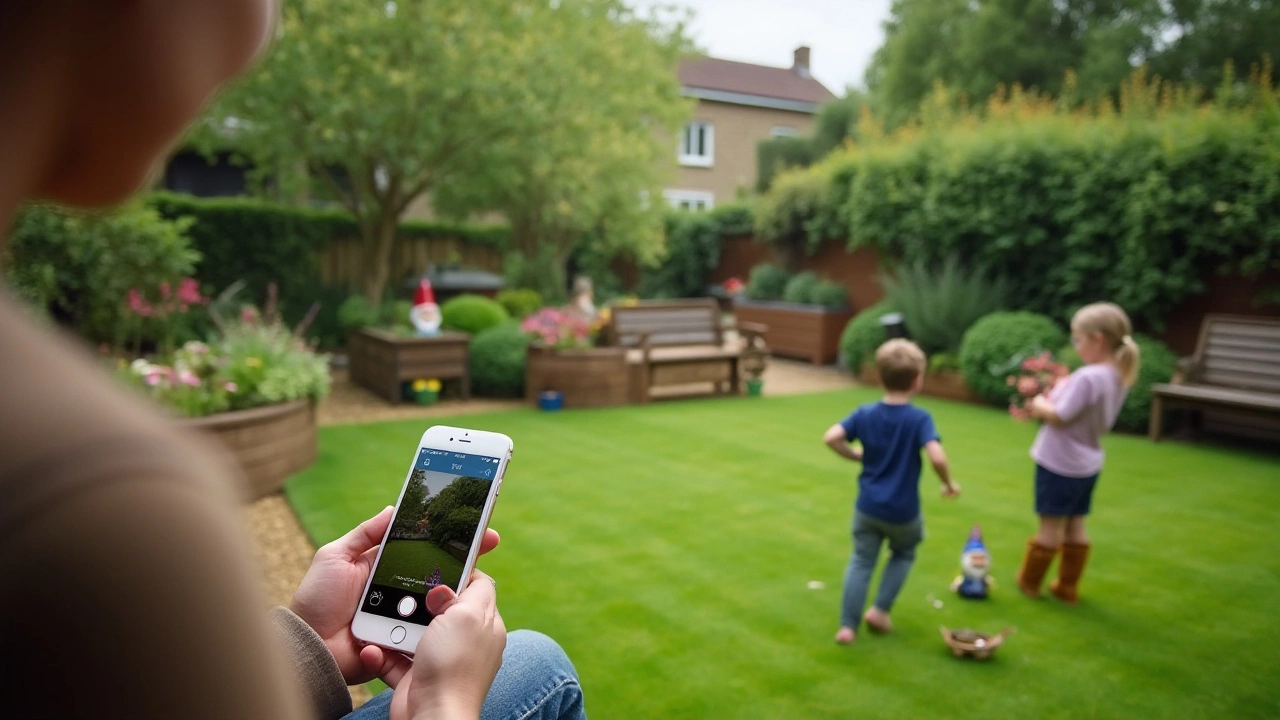The digital age has ushered in remarkable advancements, reshaping our lives in numerous ways. One area experiencing prolific growth is smart home security. With devices that blend innovation and convenience, the allure of protecting your home with smart technology is tempting. But is it truly worth diving into this new frontier of security?
In today's fast-paced world, we want security solutions that not only safeguard our residences but offer a seamless user experience. Smart security systems promise to deliver just that by providing real-time connectivity and adding a layer of safety that traditional systems struggle to match. However, questions about cost, privacy, and effectiveness often linger, leaving many to wonder if this modern approach justifies the investment.
- Introduction to Smart Home Security
- Benefits of Smart Security Systems
- Potential Drawbacks and Concerns
- Tips for Choosing the Right System
Introduction to Smart Home Security
In an era where technology is seamlessly integrated into our daily existence, the realm of domestic security has not been left behind. Smart home security systems have emerged as a beacon of innovation, promising to transform our approach to safety within our residences. These systems are often comprised of interconnected devices, including surveillance cameras, smart locks, motion sensors, and alarm systems, all of which can be controlled remotely via smartphones or computers. Smart security provides homeowners with enhanced control over their environment, offering the ability to monitor their property from anywhere in the world.
Imagine leaving your house for a vacation, yet still having the capability to keep an eye on your home. Smart security systems offer this peace of mind. Many of these systems come equipped with high-definition cameras that provide crystal-clear images and videos, ensuring no detail is overlooked. And it’s not just about vision; a number of devices include two-way communication, allowing homeowners to speak to visitors, delivery personnel, or intruders, providing a sense of presence even when you are miles away. According to a study by MarketsandMarkets, the smart home security market size in 2023 was valued at approximately $XX billion, with expectations for continual growth, driven by burgeoning consumer awareness and technological advancements.
Beyond mere surveillance, smart home security systems are intelligent. Many incorporate machine learning algorithms, so they learn your routines and can alert you to unusual activity. For example, a system might notice when doors are typically locked, lights are turned off, or when movement is expected. If an anomaly occurs, such as a door being opened at an unusual time, you receive immediate alerts. This predictive capability is one of the profound advantages over traditional systems.
According to a report in TechCrunch, "As homes become smarter, our security challenges multiply, making the smart home security market more relevant than ever before."
The integration of smart devices also offers a versatile approach to traditional security issues. Unlike older systems that might rely solely on loud alarms, modern smart systems can send discreet alerts to your smartphone, allowing you to respond quickly while remaining under the radar. Depending on the system, you might receive different types of alerts based on the situation — whether it’s a fire alarm needing evacuation, a potential burglary, or a simple movement detected by a pet. This layered approach ensures users have nuanced responses tailored to specific scenarios.
For many, the notion of smart security extends beyond security alone; it is about creating a connected ecosystem that works harmoniously to not only protect but also simplify. Pairing security devices with smart lights, thermostats, and voice assistants, for example, can create a home that not only adjusts to threats but also maximizes energy efficiency and comfort. This synergy between safety and convenience is redefining how we envision the ideal living space. Therefore, as homeowners consider the worthiness of the investment, they might ponder not just the immediate benefits but the breadth of what these advancements offer in terms of future-proofing their sanctuaries.

Benefits of Smart Security Systems
Exploring the benefits of smart security systems today reveals an exciting convergence of technology and peace of mind. Imagine returning home from work, your evening saved from mysteries thanks to instant alerts across all your devices, letting you know your child arrived safely after school. These systems do more than just stream live footage; they create an interactive relationship between you and your home where unlimited remote monitoring is possible. It's not just about security but a lifestyle change that leverages automation and integration with other smart home devices for unprecedented convenience.
Have you ever pondered how much safer you'd feel by merely unlocking your phone to see your property's live feed? That's precisely what these systems offer. High-definition cameras now come equipped with night vision, providing crystal-clear footage even in complete darkness. And let's not forget the benefit of facial recognition technology, a feature rapidly advancing in smart home security. Should an alert about unfamiliar faces be triggered, you could immediately investigate or contact authorities while still in your pajamas, miles away from home.
Smart home security also ushers a new dawn in energy efficiency. Some devices aren't just cameras—they incorporate sensors that control lighting based on movement detection. When it comes to cost-effectiveness, analysis often shows a decrease in energy consumption, with smart integrations turning off unnecessary lights or appliances when you’re not around. This not only reduces your carbon footprint but also trims your monthly utility bills, offering a financial incentive alongside peace of mind.
"No matter how advanced or connected your smart security system becomes, it should always maintain the foundational elements of what makes your home safe in the first place," emphasizes John Smith, lead home safety analyst at TechShield Weekly.
Another significant benefit is the system's scalability to fit different needs and budgets. Whether you’re in a quaint apartment or a sprawling mansion, the modular nature of these systems ensures that expanding protection measures as per location size is a seamless endeavor. Many platforms allow for additional cameras, motion sensors, or even integration with smart doorbells over time. Unlike their predecessors, you're not locked into one layout.
Smarter isn’t just better; it can mean safer. For instance, modern smart alarms connect directly to emergency services, significantly reducing response times. In many cases, insurance companies recognize the value of such systems, as well. As a result, you may find that installing a robust home security system can lead to reduced homeowners' insurance premiums. This, essentially, subsidizes part of the system’s cost.
Consider how the combination of real-time alerts, energy savings, and insurance discounts make smart security systems an investment that pays for itself over time. Their integration within a broader smart home ecosystem makes them indispensable, particularly for tech-savvy homeowners. With these benefits, the decision to transition to smart security seems less about whether you should and more about when you will make the switch.

Potential Drawbacks and Concerns
While the appeal of smart security systems is undeniable, potential users must navigate a landscape littered with concerns that are as real as the benefits these devices promise. The first significant drawback is the upfront cost. Many homeowners feel the sting of high prices associated with the latest technology. High-end systems loaded with features can run into the thousands, which might not be feasible for everyone. Yet, this investment is for securing one's home—can you put a price on peace of mind?
Another major concern lies in privacy. The very connectivity that allows remote monitoring and real-time alerts also opens the door to cyber threats. Hackers are constantly finding ways to infiltrate even the most secure systems, raising valid concerns about keeping personal data safe. Imagine the possibility of strangers gaining access to your security footage or data. This is a daunting thought for many prospective buyers. Privacy advocate Bruce Schneier once mentioned,
"As we move to a more networked world, cyber threats will continue to grow."This illustrates why ensuring robust security measures within your smart system is not just optional, but critical.
The reliance on network connectivity poses yet another potential issue. Smart systems are as good as their internet connection. A drop in connection can mean a lapse in your security coverage. Whether due to power outages, service provider problems, or maintenance schedules, the prospect of being vulnerable during connectivity failures can be enough to make one pause. Additionally, while some systems promise 24/7 customer support, many fall short, leaving users hanging during emergencies.
Complicated setups and the need for ongoing maintenance can also deter users. Unlike traditional security systems, smart technologies often require not just the initial setup but continual updates to software and hardware alike. This maintenance can become a hassle, especially for those not tech-savvy. Failure to update your system can leave it susceptible to issues or malfunction, which is the last thing any homeowner wants. For some, the trade-off between convenience and persistent upkeep demands thoughtful consideration.
Lastly, there's the risk of obsolescence. With technology advancing at breakneck speeds, today's top-of-the-line device can become outdated in just a few years or even months. Newer models may offer improved features or integration capabilities that weren't previously available. This fast-paced evolution can leave users with a system that feels more obsolete with each passing tech milestone. Balancing the need for the latest technology with a sensible investment strategy is crucial for potential buyers looking to future-proof their homes.

Tips for Choosing the Right System
When venturing into the world of smart home security, selecting the right system is essential to ensure both peace of mind and value for your investment. With an array of products flooding the market, it is vital to cut through the noise and focus on features that make a real difference. To start, consider the needs specific to your household. For example, a large family home in the suburbs may require extensive coverage with multiple cameras and sensors, while a single loft in the city might be sufficiently protected by a simplified system. Tailoring your choices based on your living situation can narrow down the options significantly.
Looking into compatibility is another crucial step. Modern smart security systems should seamlessly integrate with other devices in your connected home, such as your smartphone, voice assistant, or other Internet of Things (IoT) gadgets. Having these integrations can make managing security both easier and more effective. For instance, systems compatible with Alexa or Google Home allow hands-free control and real-time updates. If you’re keen on automation, check for systems that offer IFTTT (If This, Then That) support, enabling you to create customized commands that respond to specific triggers, from turning lights on when motion is detected to sending alerts to your phone.
Cost is always a significant consideration. Smart security systems range widely in price, and it’s essential to weigh the upfront costs against potential long-term savings. Some systems come with monthly subscription fees, which cover monitoring services or cloud storage for video footage. Compare what each package provides against your budget and needs. Moreover, security experts, like those from Consumer Reports, suggest prioritizing subscription features that effectively enhance safety over those merely adding convenience.
"The best home security system is one that fits your personally defined needs, not the one with the most features," says Nate Johnson, a renowned security analyst.
Safety doesn’t stop at physical protection; consider digital security as well. Ensure the system you choose offers strong encryption to protect your data from potential breaches. Research the manufacturer’s track record and look for regular software updates. In today’s cybersecurity climate, a data breach can be as troubling as a physical one. Additionally, some manufacturers offer unique safety measures like two-factor authentication, which provides an extra layer of security. Also, familiarize yourself with privacy policies to understand who has access to your information and how it’s used, ensuring that convenience doesn’t come at the expense of privacy.

